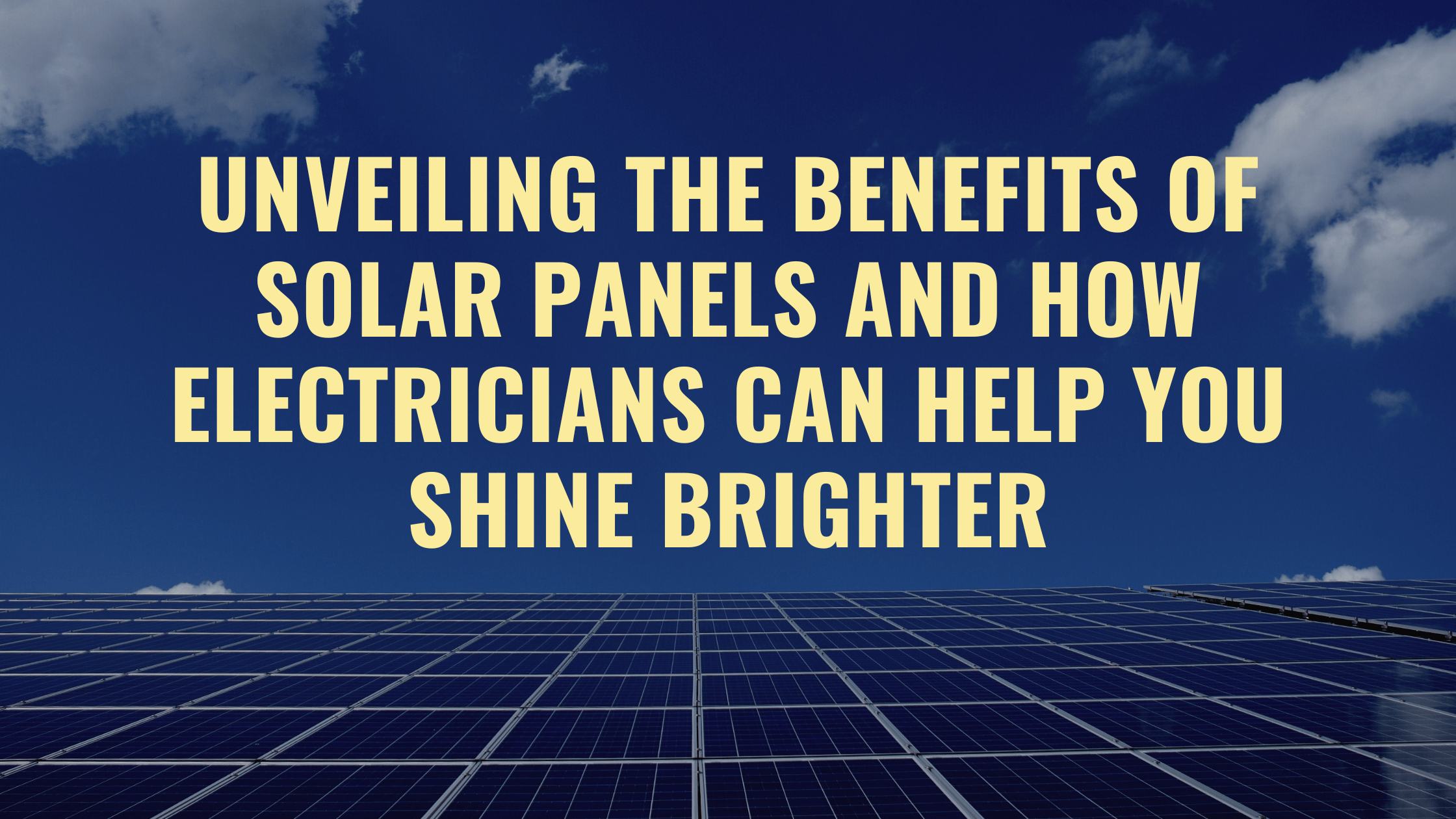Green Solar Power with Simply Solar Illinois – Go Solar Today
Just How Solar Energy Can Aid You Save Money and Reduce Your Carbon Footprint
The combination of solar energy into your power profile offers an engaging chance for both financial cost savings and ecological stewardship. By taking advantage of the sunlight's power, property owners can considerably lower their monthly energy expenditures while also guarding versus the unpredictability of future power expenses. The change to solar contributes to a marked reduction in carbon discharges, aligning personal financing with more comprehensive ecological objectives. As various federal government incentives become available, the inquiry occurs: just how can one successfully browse the first investments and ongoing advantages of solar innovation to maximize both economic and ecological gains?
Comprehending Solar Energy Savings
While the change to solar power usually includes an initial investment, recognizing solar power cost savings is crucial for house owners and companies alike. Solar power systems can considerably lower electrical power costs by harnessing the sun's power, equating right into substantial long-term financial advantages. By generating their very own electricity, individuals lessen dependence on grid power, which undergoes fluctuating prices. These savings can build up gradually, usually bring about a quick roi.
In addition, solar energy systems might receive different monetary incentives, including tax credit histories and refunds, additionally improving their cost-effectiveness. The availability of internet metering permits users to market excess energy back to the grid, creating an added income stream. These aspects add to the general savings connected with solar power.

Along with direct monetary savings, solar energy offers the included advantage of raising residential property value. Homes outfitted with solar panels are commonly extra appealing to purchasers, as they guarantee lower energy costs - Simply Solar Illinois. Understanding these components is vital for anyone thinking about solar power, as it highlights not just the potential monetary gains, but additionally the broader environmental and economic benefits of adopting renewable resource options
Initial Costs vs. Long-Term Benefits
When examining solar power, it is very important to consider the preliminary costs versus the long-lasting advantages. The in advance investment for photovoltaic panels, installation, and related equipment can be significant, often varying from $15,000 to $30,000, relying on the system size and home power demands. This preliminary expenditure might discourage some property owners; however, it is essential to take into consideration the prospective savings gradually.
Once mounted, solar energy systems can substantially decrease or also get rid of month-to-month electrical energy bills, leading to significant long-term monetary advantages. Research studies show that house owners can save anywhere from $10,000 to $30,000 over the life-span of their solar system, commonly 25 years. Furthermore, several states offer motivations, tax credit scores, and rebates that can balance out first costs, making solar much more obtainable.

Reducing Your Carbon Footprint
Minimizing your carbon footprint is a crucial consideration in today's ecologically conscious society, and embracing solar energy is one of the most efficient approaches to accomplish this goal. Solar power is a tidy, renewable energy that considerably lessens dependence on nonrenewable fuel sources, which are significant factors to greenhouse gas emissions.

Moreover, the widespread fostering of solar technology urges the development of environment-friendly work and supports innovations in energy storage space and effectiveness. The even more individuals and companies purchase solar energy, the greater the collective decrease in carbon emissions, cultivating a cleaner ambience for future generations.
Federal Government Incentives and Refunds
Taking on solar power not just profits the atmosphere yet can likewise cause significant monetary cost savings, especially with the accessibility of government rewards and discounts. Various federal, state, and regional programs are made to encourage home look at these guys owners and organizations to buy solar power systems, making the shift a lot more budget-friendly.
One of the most famous motivations is the Federal Investment Tax Credit Rating (ITC), which enables planetary system owners to deduct a substantial portion of the setup expenses from their government tax obligations. This incentive has been pivotal in decreasing the in advance costs connected with solar power systems. Furthermore, many states provide their own tax credits, gives, and discounts that can better boost financial savings.
Furthermore, some local federal governments offer property tax obligation exceptions for solar installments, making sure that house owners do not deal with boosted property tax obligations as a result of their renewable power financial investments. Utility business may also offer motivations, consisting of net metering and feed-in tariffs, which enable solar power individuals to sell excess power back to the grid.
Picking the Right Planetary System
Selecting the appropriate planetary system is crucial for taking full advantage of power effectiveness and monetary advantages. The decision depends upon a number of variables, including power needs, budget plan, and offered room. Property owners must start by examining their electrical power intake to figure out the system size needed for optimum performance.
Next, think about the various kinds of solar technologies available. Simply Solar Illinois. Photovoltaic Or Pv (PV) panels are the most usual, converting sunshine directly right into power, while solar thermal systems concentrate on heating water. Each kind has distinct benefits depending on private demands
Spending plan factors to consider are likewise paramount. Preliminary installment costs can differ considerably, so it is very important to compare quotes from several suppliers and explore financing alternatives. Government motivations and rebates can better decrease the financial worry, making planetary systems much more available.
Conclusion
The environmental advantages of solar energy add to lasting methods important for combating climate adjustment. Government incentives improve the feasibility of solar innovation adoption, urging a transition in the direction of a cleaner, extra financially efficient power resource.